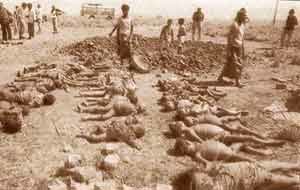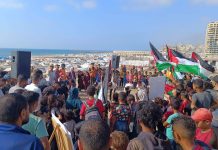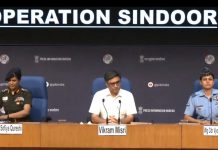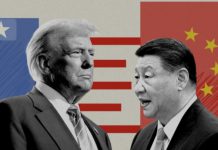18 February, 2020 marks the 37th anniversary of one of the worst-ever genocides committed in post-1947 India against Muslims in Assam, that is, the Nellie Massacre. (via Nooriya Jamil, Muslim Memo)
Three decades have passed, and not even a single assailant has so far been convicted, yet alone prosecuted, for this heinous atrocity.
On the 18th of February in 1983, in central Assam, officially 1,819 and unofficially over 3,000 Muslims were driven out of their homes and massacred on the fields of Nellie and 13 other villages by a mob carrying country guns and machetes. Houses were razed down to the ground and fields were destroyed. A significant number of those who died that day were women, children and the elderly who could not run fast enough to save their lives.
Nellie Massacre, 1983: A Hate Crime Against Muslims
What Happened?
There are multiple reasons attributed to the Nellie Massacre, but the primary reason would be the Assembly elections of 1983 that agitated the activists of All Assam Students Union (AASU). AASU members wanted the expulsion of all the so-called “illegal migrants” from Assam and the removal of their names from the voters’ list. Despite massive resistance from groups like AASU and the general public, the then Central Government of India decided to call for Assembly elections in Assam in February 1983.

In response, AASU asked the people of Assam to boycott the elections. Spurred by the fact that they were being targeted through the anti-foreigner agitation, Muslims across the state decided to ignore the boycott and voted on 14 February 1983. For them, voting was their right — as guaranteed to them by the Indian Constitution.
This defiance would later serve as the immediate cause for the Massacre.
The Government’s Role
One has to let such events take their own course before stepping in.
This remark was made by the then-Prime Minister Indira Gandhi, in reply to Financial Times, when asked why she had not acted earlier to stop the violence. Her government’s biggest failure was that it conducted elections in an already volatile situation. Police and CRPF personnel were posted in polling booths and got busy in providing security to the election candidates; law-enforcement agencies were inoperative in Assam at that time. Of course, government representatives did visit the refugee camps later on for their own political agenda, and talked a lot about launching an investigation into the violence (while in reality, they even failed to table one of the most talked-about documents regarding the Nellie Massacre — the Tewary Commission Report). The Report was not made public.
The Media’s Role
The Indian media chose to maintain a conspicuous silence on the Nellie Massacre, save for few exceptions such as Hemendra Narayan’s monograph titled 25 Years On… Nellie Still Haunts which he wrote 25 years after the massacre. To quote Narayan:
It was a release for me. There was something in my head and I had to release it. People did ask me why after twenty-five years? I said that I lived with it and now I had to get over it (by writing about it).
Japanese social scientist Makiko Kimura conducted the first-ever extensive social research on the massacre, but the Assam government did not allow her to present her paper, as Nellie was considered a sensitive issue. She also authored a book titled The Nellie Massacres, 1983: Agency of Rioters.
Conclusion
The incidents of Nellie are just another entity in the long list of genocides against Muslims. Even after repetitive attempts to sweep this act of xenophobia under the rug by the inefficient legal system, indifferent media and ineffective political decisions, it will continue to resurface and its memory will linger on. As of now, the sufferers of this violence are still waiting for justice, or at least, an acknowledgement of the grotesque incident that has left a wound too deep to heal.
This article has been taken from FB post of Mohammed Sirajuddin Al Firdous. It is personal’s view of writer. Article was first published by Nooriya Jamil in Muslim Memo.

















